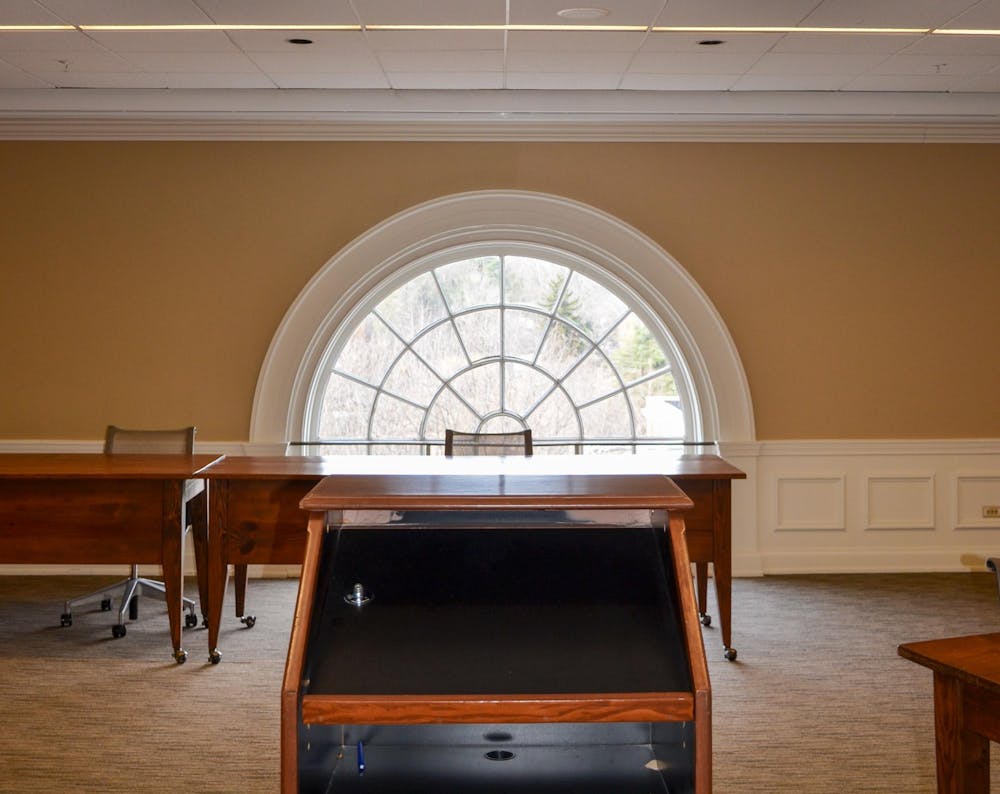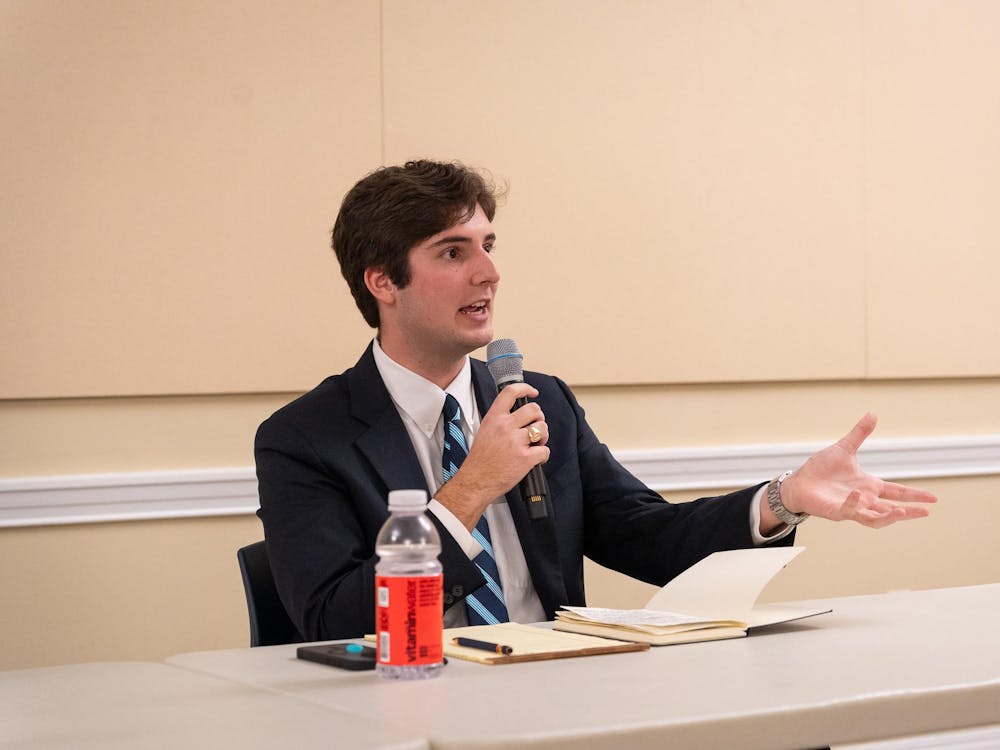The University Judiciary Committee adjudicated 15 cases, all involving individuals, from Jan. 1 to May 10. The Committee released its Spring 2025 Statistics Report to the University community June 4, which detailed cases including 11 alleged violations of Standard 2 — conduct which intentionally or recklessly threatens health and safety — and five alleged violations of Standard 1 — physical assault. 10 pending cases remain on the docket to be processed in the fall.
The UJC is comprised of more than 130 student members from all 13 of the University’s schools, and it oversees the adjudication of cases involving violations of the University’s 12 Standards of Conduct.
The number of cases adjudicated this semester is down 32 percent from the 22 finalized the previous semester. No cases were brought against organizations this semester, down from the three cases against fraternities processed in the fall.
Standard 1 violations saw a dramatic uptick, with only one alleged violation in the fall semester rising to five this past semester. Standard 6 violations — violations of University policies or regulations concerning residence and use of University facilities — saw a drop, down from 21 allegations in the fall semester to four in the spring semester. Standard 2 violations remained relatively constant with 12 and 11 allegations in the fall and spring semesters, respectively.
The mean case processing time — including University breaks — had a 14 percent decrease from the fall semester, down from 92.09 days to 78.87. According to Allison McVey, UJC chair and fourth-year College student, this decrease can be attributed to both not having any cases against organizations on the docket and expediting cases involving fourth-year students in time for graduation.
“For the decrease in mean case processing time, it could be partly because we didn’t see any [organizational] cases, but [it] could also be partly due to the fact that cases which come in during the Spring that involve fourth years usually have to be somewhat expedited to ensure they’re heard before graduation while allowing for an appeal window,” McVey wrote in a statement to The Cavalier Daily.
However, excluding University breaks, the mean case processing time increased from 51 days in the fall to 56.4 days this spring.
60 percent of the individuals who submitted reports to the Committee were students, which McVey noted as important in the report.
“Our Committee exists as a resource for all members of the University community; I encourage you all to keep [this] in mind as you navigate your University experience, and to reach out if you are considering whether filing a complaint is right for you,” McVey wrote.
To submit a report, students, faculty or staff must use a link from the UJC website, then log in with their NetBadge identification, then can submit a report online.
Of the accused, 93.3 percent were undergraduate students, similarly to the fall semester, during which 95 percent were undergraduate students. 80 percent of accused students were from the College of Arts and Sciences, up from 53 percent in the fall. The School of Engineering and Applied Science had a decrease from 21 percent in the fall to 13.3 percent of spring cases, and the School of Data Science had an increase from 0 percent last fall to 6.7 percent this spring.
During the spring semester, 33.3 percent and 26.7 percent of accusations were made against undergraduate fourth-year and third-year students, respectively. Accused first-year and second-year students each made up 6.7 percent of cases.
73 percent of cases resulted in a guilty plea or verdict. In terms of sanctions, four were charged with community service hours, eight had counseling sessions with WahooWell or other educational programs, one was banned from final exercises, two were given suspensions in abeyance and 11 individuals wrote essays — personal reflections, apology letters, research or action plans.
According to McVey, students whose sanctions include a research paper write about circumstances surrounding the incident — McVey listed topics of healthier coping strategies and alcohol habits as examples.
“These sanctions are in service of the Committee’s animating ideals of restoration, rehabilitation and safety for all members of our community,” McVey wrote in the report.
The Committee will begin processing the pending 10 cases when students return to Grounds in the fall.







